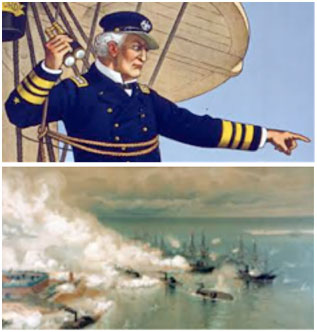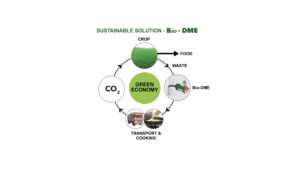
Our Inspiration David Farragut, decided to rise above the smoke by tying himself to the mast of his ship. With unobstructed view of the field “Full Speed Ahead, damn the torpedos” became a reality
Sustainable Transportation & Cooking Fuel - BioDME
Transportation
With 58% of US transport dependence on fossil fuel (Oil, Natural Gas), America’s economic security is tremendously susceptible to disruptions in the oil markets. During the next 25 years, the total number of miles driven by Americans is projected to grow by about 23%, increasing the demand for fuel. Ironically, fossil fuel resources are already dwindling, resulting in increased costs and making US economy fragile. On the other side fossil fuel retrieval is becoming ever more environmentally damaging due to release of CO2, SOX, NOX, and particulates. It is estimated that transportation sector accounts approx 29% of total U.S. GHG emissions.
Cooking Fuel
Cooking energy is a necessary input for satisfying the basic human need of survival. Today, about 50% of the United States homes are heated by natural gas. The wide range of uses for natural gas makes it a critical resource for the United States. Although natural gas is a clean and multi-use fuel in residential sector, it is a finite source of energy and cannot be considered a long-term solution to energy supply problem. Additionally, its leakage is extremely dangerous and expensive, pipe installations are very expensive with special tanks and plumbing systems.

Bio-DME is a sustainable solution for circular economy. Within biospheric carbon cycle Bio-DME is 100% CO2 neutral, but in present situation it can reduce carbon foot-print by 97% (3% CO2 is released by diesel used in transportation of biomass and other activities for its production). The CO2 released during diesel combustion will be sequestered again as the plants regrow.
Diesel - The King Of Fossil Fuels
Diesel is the fuel that significantly governs 3E’s (Energy, Economy & Environment) of sustainability. From providing power for mining, construction, agriculture to moving billions of tonnes of goods around the world every day on trains, ships and in heavy-duty vehicles, it is the widely accept source of Energy. Its unmatched power density, energy efficiency and widespread availability drives the Economy by fuelling transport and non-transport engines.
Air pollution is a ‘silent public health emergency’. Diesel emission from transportation containing pollutants PM2.5, PM10, CO, NOx, SO2 is one of the major causes of air pollution. It contributes to smog, poor air quality and negative impacts on the human health. Particularly the particulate matter PM2.5 is of great concern which causes serious respiratory illnesses and the primary driver of air pollutant-induced mortality. Ground level ozone and Acid rain are other known derivatives of diesel emissions that affects crops, trees and quality of soil, lakes and streams respectively.

Air pollution due to crop waste burning affecting school going children.
